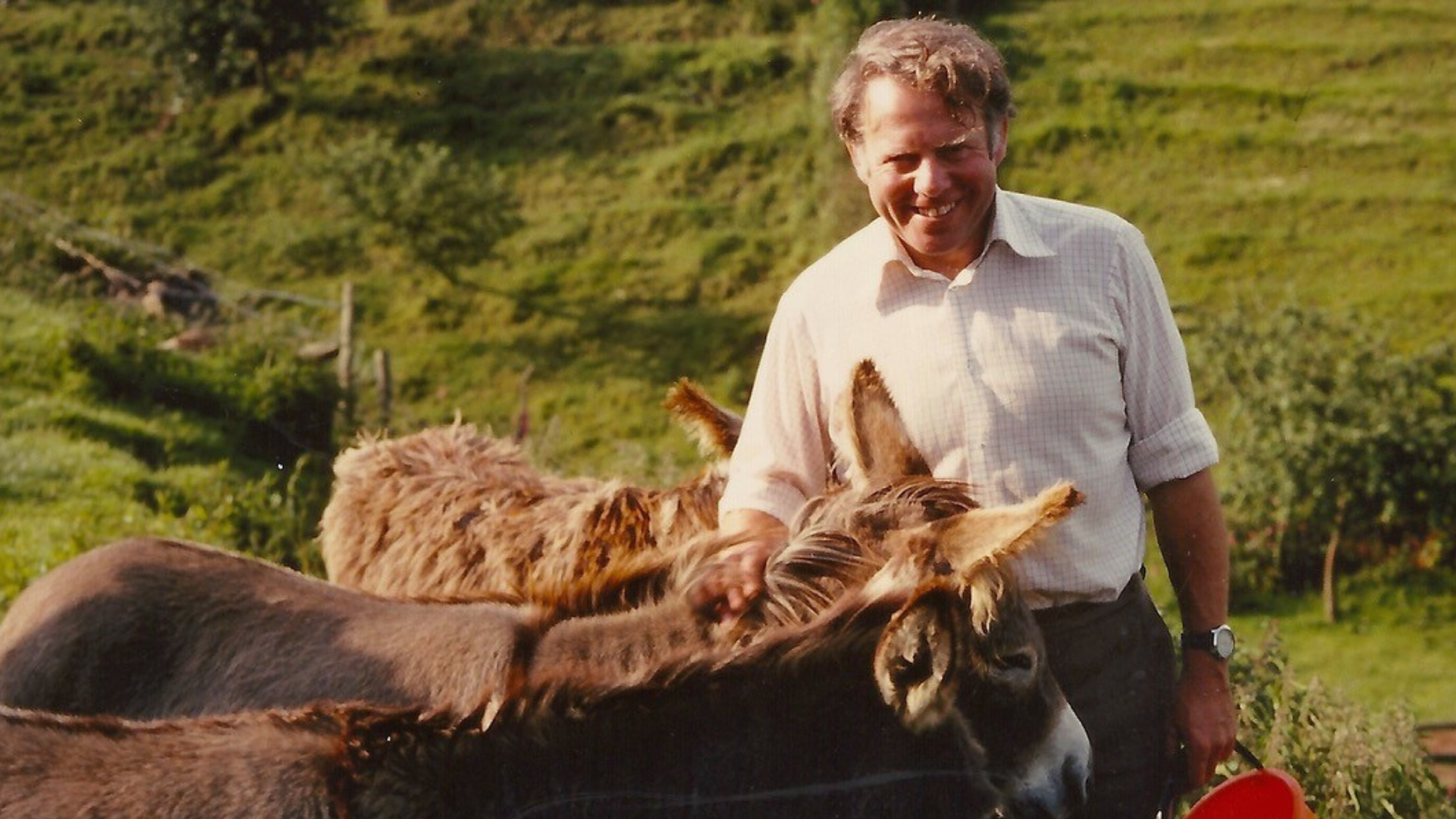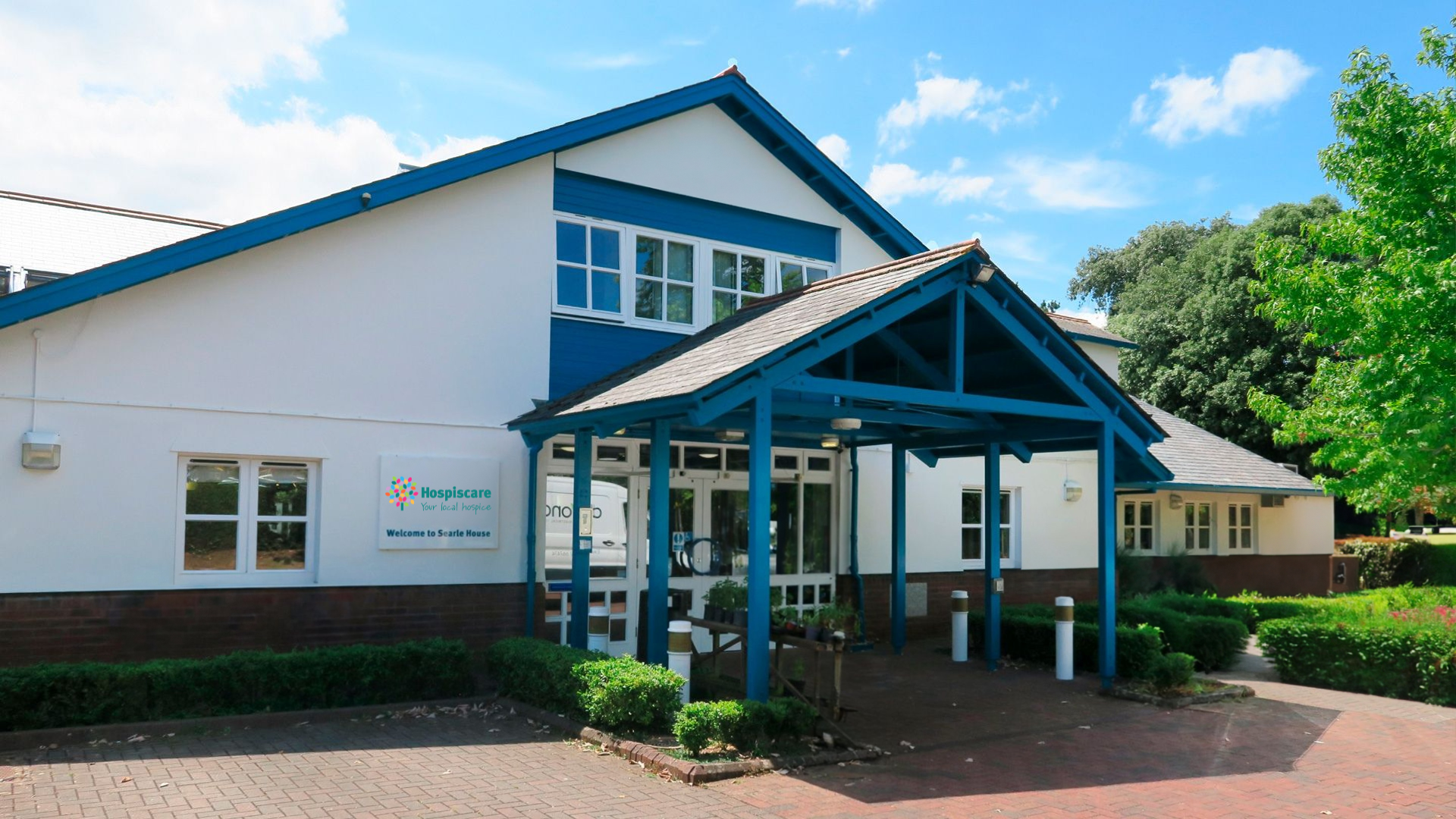My first experience of Hospiscare was a few years ago when my sister died of cancer. I spent her last couple of days with her at the hospice in Exeter, seeing for myself how kind everybody was, and the amazing care she received.
So when I realised I needed help in looking after my father, the hospice was where I turned to see if they could help me with advice on how to care for him.
My father, William, has leukaemia and other medical conditions, but also dementia – vascular dementia. Although he was physically very ill, it was dementia that was causing most issues at the time. My father’s mind was telling him he could still do things that his body was no longer capable of. He was angry that he had lost the ability to drive, and had had his licence taken away by the DVLA. Although we supported him by providing him with a mobility scooter, the problems did not go away. My father began going further and further on the scooter, but would then not know where he was, so we would have to go and find him; my wife would drive him home while I took the scooter back. Eventually, the scooter had to go.
The problem with dementia is that while my father was so angry about this, in his mind he had a very different account of what had happened. This removal of mobility, along having had to rehome his beloved chickens because he could no longer care for them (and because bird flu meant he would have to keep them indoors), exacerbated his anger and I needed help in dealing with this.
Chrissy, Hospiscare Admiral Nurse, has been amazing. She supported both of us.
She has helped my father by showing him she understands his feelings, and befriending him at a time when he felt that everyone was against him. She listened, and so she became someone he could vent to about feeling trapped, and constrained and ignored. She has techniques, seemingly simple, but well-practised, that take the stress out of the situation. Simply repeating his words back to him, just repeating them, made such a difference in reducing the confrontation and helping me to deal with the situation in which we have found ourselves.
Chrissy also introduced us to Caroline, one of the Hospiscare volunteer Care Navigators she has trained in dementia care. Caroline has spent a lot of time with my father, just my father, talking to him and helping him work out some of his anger, helping him to write his life memories.
My father has always been a devout man, and his Christianity has been part of his daily life. He struggled emotionally with the injustice of my sister having died, as he had convinced himself, through his interpretation of various religious texts, that the outcome would be a positive one. He created a card, with these beliefs written on snippets and pasted onto it, and for years, he would produce this as his evidence that her death simply should not have happened. With the support of Chrissy, and time with Caroline, this card disappeared, and we haven’t seen it again.
The Admiral team has been such a support in many other ways, not least helping to gain access to other medical care and support when needed. For instance, my father is now in a care home, one of our choosing, but we couldn’t have managed that without their support and knowledge of how the systems work. Their advocacy of my father has opened doors that previously felt not just shut but locked to us.
One problem we faced is that my father has advanced vascular dementia. We know this from the CT scans he had three years ago, when his leukaemia was under investigation. We have seen the damage caused to the veins and how they have shut off. In theory, he should be completely confused all the time, but he is able, sometimes, to pull himself together and have perfectly normal conversations with a doctor, or someone who may be there to assess his capabilities. They don’t see how tired this makes him, or how he switches back the moment they leave. It is frustrating, but Chrissy’s professional reputation means that when she calls and advocates on his behalf, she is able to describe how she has seen him in both states, giving the credence to our case that we have needed. Just having her in our corner as we try to navigate our way through the systems has been amazing. Having her as a sounding board too has been a relief.
I can’t thank all of the team enough. The work that they do is so important. If they are able to make an even greater impact through their training of others, I would whole-heartedly support this. Sometimes, when we were relying on carers coming in up to three times a day to look after my father’s needs, those with little knowledge about this complex condition, could often, unintentionally, exacerbate some of the problems we were facing. If the Admiral team can share their knowledge and skills with the wider care system, we would all benefit.
Please, if you are able to make a donation to support the work of this incredible, knowledgeable team, would you do so by clicking here?
If you have never experienced caring for someone with dementia you probably have no idea of the difference it can make just to have someone who listens, someone who believes you, does exactly what they say they will do and more than anything, returns your calls and lets you know what is going on. If you have no experience of this, I hope you never do. But if you recognise any part of our story, I hope you will offer your support so that these wonderful nurses can continue to help families like mine.


